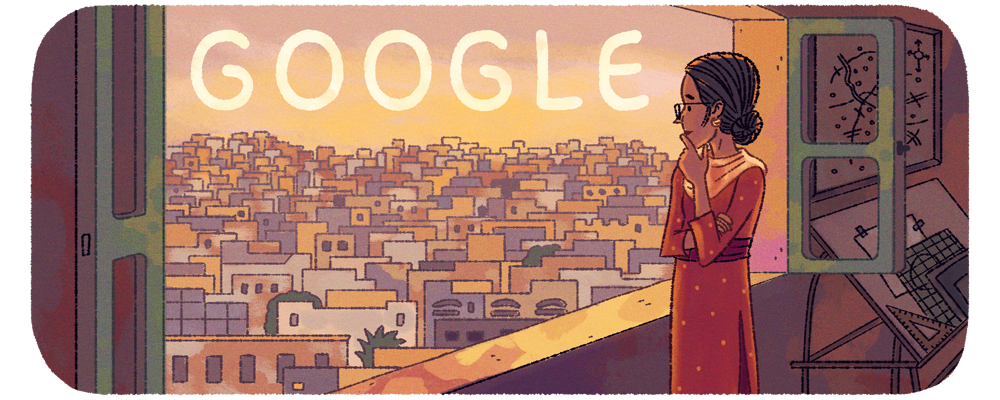Today’s Doodle honours Perween Rahman, a Pakistani social activist, architect, and urban planner who dedicated her life to improving the lives of marginalised people.
Perween Rahman was born in Dhaka, then in East Pakistan, on January 22, 1957. (now Bangladesh). Following the civil war in East Pakistan in 1971, she moved to Karachi with her Bihari family.
She graduated from the Dawood College of Engineering and Technology with a Bachelor of Architecture in 1982, and the Institute of Housing Studies in Rotterdam, Netherlands, with a postgraduate diploma in housing, construction, and urban planning in 1986. She worked for a private architecture business until being hired as joint director of the Orangi Pilot Project by Akhter Hameed Khan in 1983, where she oversaw the housing and sanitation projects.
Perween Rahman was named director of the Orangi Pilot Project – Research and Training Institute (OPP-RTI) in 1988, where she managed programmes in education, youth training, water supply, and safe housing.
She started the Karachi-based NGO Urban Resource Centre in 1989 and served on the boards of Saiban, a low-income housing NGO, and Orangi Charitable Trust (OPP-OCT), OPP’s microfinance branch.
She was a professor at Karachi’s University of Karachi, NED University, Indus Valley School of Art and Architecture, and Dawood College of Engineering and Technology.
In Orangi Town, on the outskirts of Karachi, one of the world’s largest informal settlements, the OPP organisation focused on sanitation, housing, and healthcare. Many inhabitants in this area were unable to rely on legal protection to keep their homes and were repeatedly evicted for construction projects. Rahman’s work eventually became crucial in maintaining the region’s precarious community, from scrupulously documenting property boundaries and ownership information to championing education and community involvement activities.
Rahman was named head of the OPP’s housing and sanitation programmes because of her commitment to helping Orangi Town’s 1.5 million citizens safeguard their land rights. The OPP cooperated with the government to establish 650 private schools, 700 medical clinics, and 40,000 small companies under Rahman’s leadership. She has received various awards for her accomplishments, including the Sitara-e-Shujaat (Order of Bravery award) conferred by the President of Pakistan on 23 March 2013, and her work has influenced how Pakistani towns are established today.
- Google Doodle Celebrates King’s Day (Koningsdag) 2025 - April 26, 2025
- NCAA DIII Men’s Volleyball Championship 2025: Full Bracket, Schedule, and Scores - April 26, 2025
- NCAA DII Men’s Golf 2025: See the Complete List of Regional Selections - April 26, 2025



